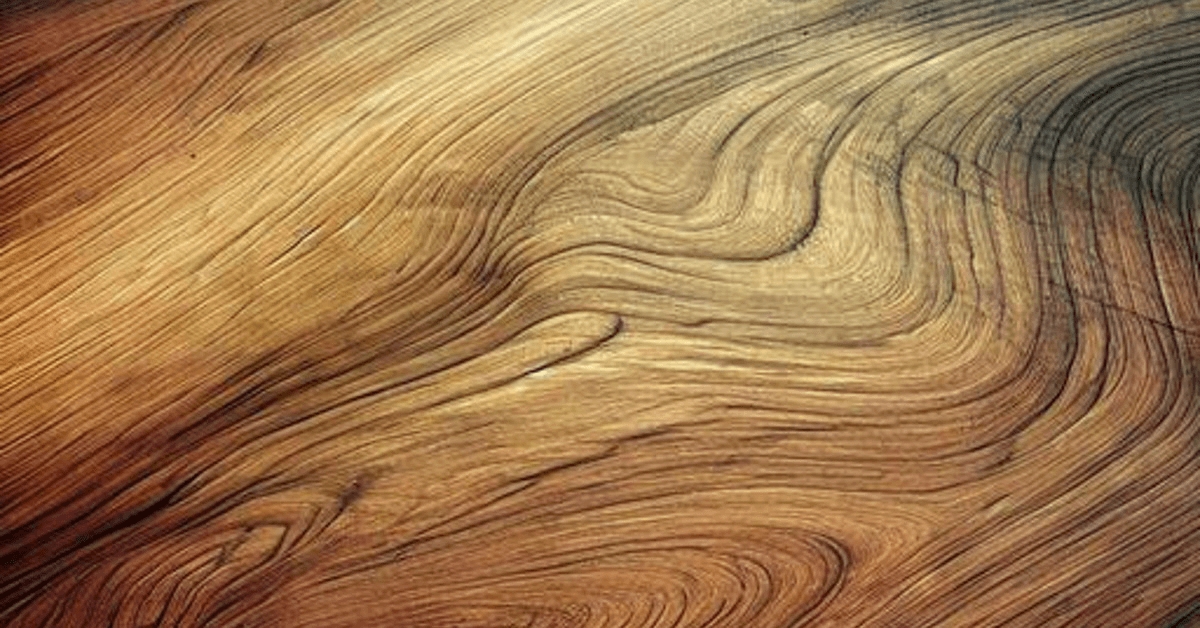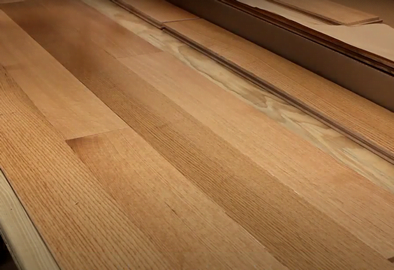How to Extend the Lifespan of Your Hardwood Floors: A Comprehensive Guide
Uncover the secrets to prolonging the life of your hardwood floors. From understanding the impact of wood quality to mastering maintenance practices, we guide you through maximizing your flooring investment.

As homeowners, we invest a considerable amount of time and money into making our houses feel like homes. One of the most crucial investments we make is our flooring, and hardwood floors are a popular choice.
Not only are they aesthetically pleasing, but they also add value to our homes. However, as with any investment, we want to know how long we can expect it to last.
In this article, we will explore the factors that affect the lifespan of hardwood floors and provide tips on how to extend their longevity. Several factors impact the lifespan of hardwood floors, including the quality of the wood, the installation method, and the maintenance practices.
Understanding these factors can help you make informed decisions about your flooring investment and ensure that it lasts for years to come. In addition, knowing how to properly maintain and care for your hardwood floors will not only extend their lifespan but also keep them looking their best.
So, let’s dive in and learn more about how long hardwood floors last and what we can do to ensure they endure.
Factors Affecting Hardwood Floor Lifespan
Want to ensure your hardwood flooring remains in excellent condition for years to come? Learn which factors impact their lifespan.
While hardwood floors are known for their durability, their lifespan can vary depending on several factors. One of the most significant factors affecting hardwood floor lifespan is environmental conditions. High humidity levels or fluctuations in temperature can cause wood to expand and contract, leading to cracks and warping over time.
Another critical factor that affects the lifespan of your hardwood flooring is the type of finish applied to them. The finish serves as a protective layer that shields the wood from scratches, stains, and other damage caused by regular foot traffic.
The type of finish you choose can make a significant difference in how long your hardwood floors last. For example, oil-based finishes tend to last longer than water-based finishes, as they penetrate deeper into the wood and provide more robust protection.
In addition to environmental factors and wood floor finish, the amount of foot traffic your floors experience can also impact their lifespan. High-traffic areas, such as entryways and hallways, are more prone to wear and tear than less frequently used rooms, such as bedrooms.
To extend the life of your hardwood floors, consider placing area rugs in high-traffic areas, using felt pads on furniture legs to prevent scratches, and sweeping or vacuuming regularly to remove dirt and debris that can scratch the finish.
Understanding Wood Quality and Durability
You’ll want to take note of the wood quality and durability if you want your investment to withstand the test of time and wear.
One of the most significant factors affecting the longevity of your hardwood floors is the wood species selection. Each wood species has its unique characteristics, such as hardness, stability, and grain patterns, which affect its durability. Some of the most durable hardwood species, such as Brazilian walnut, hickory, and oak, can withstand heavy foot traffic and resist scratches and dents. However, keep in mind that the harder the wood, the more difficult it is to sand and refinish.
Another factor that affects the wood quality and durability is the wood grading. Wood grading refers to the visual appearance of the wood, such as knots, grain patterns, and color variations. The grading system varies depending on the wood species, but most commonly used grading systems are Select, #1 Common, and #2 Common.
Select grade has the fewest knots and color variations and is considered the highest quality. #1 Common has more knots and color variations, while #2 Common has the most knots and irregularities. Keep in mind that the higher the grade, the more expensive the wood will be.
In conclusion, understanding the wood quality and durability is crucial if you want your hardwood floors to last long. When choosing a wood species, consider its hardness, stability, and resistance to scratches and dents. Also, pay attention to the wood grading and choose the one that best fits your budget and aesthetic preferences.
With proper care and maintenance, high-quality hardwood floors can last for decades and even increase the value of your home.
Installation Methods and Their Impact on Floor Longevity
Installing hardwood floors properly can significantly impact their lifespan, and it’s essential to know which installation methods will help your investment withstand the test of time.
Two popular installation methods are nail and glue. Nail installation involves securing the hardwood planks to the subfloor using nails, while glue installation involves applying adhesive to the subfloor and placing the hardwood planks on top. Both methods have their advantages and disadvantages.
Nail installation is more traditional and can be easier to repair, whereas glue installation can offer a more seamless appearance and better sound insulation.
Another consideration when installing hardwood floors is whether to use engineered or solid hardwood. Engineered hardwood is made of layers of wood veneer glued together, while solid hardwood is made of a single piece of wood. Both options can last for decades, but engineered hardwood may be more stable in areas with high humidity or temperature fluctuations. Additionally, engineered hardwood can be more cost-effective and easier to install than solid hardwood.
Ultimately, the installation method you choose can impact the longevity of your hardwood floors. Proper installation can prevent gaps, buckling, and other issues that can shorten the lifespan of your floors.
It’s important to work with a professional installer who can help you choose the right installation method for your space and ensure that the installation is done correctly. With the right installation and maintenance, hardwood floors can last for generations and add value to your home for years to come.
Maintaining Your Hardwood Floors for Optimal Lifespan
To ensure you get the most out of your investment, it’s crucial to know how to properly maintain your hardwood floors, keeping them in pristine condition for years to come.
Regular cleaning is key to maintaining the longevity of your hardwood floors. Sweep or vacuum your floors at least once a week to remove dirt and debris that could scratch the surface.
It’s important to avoid using a wet mop or steam cleaner on your hardwood floors as water can seep between the boards and cause damage.
In addition to regular cleaning techniques, refinishing can also help to extend the life of your hardwood floors. Refinishing your floors can help to remove scratches and dents, and give your floors a fresh new look.
If your hardwood floors have deep scratches or stains that won’t come out with regular cleaning, it may be time to consider refinishing. There are several options for refinishing your hardwood floors, including sanding and staining or using a hardwood floor renewal product.
To keep your hardwood floors looking their best, it’s important to follow a few simple maintenance tips. First, avoid wearing high heels or shoes with cleats on your hardwood floors as they can cause damage.
Second, use furniture pads to protect your floors from scratches caused by moving furniture. Third, avoid placing plants or other items on your hardwood floors that may trap moisture and cause damage.
Finally, consider using a humidifier in your home during dry months to prevent your hardwood floors from drying out and cracking. By following these tips, you can help to ensure that your hardwood floors last for years to come.
Extending the Lifespan of Your Hardwood Floors: Tips and Tricks
If you want to keep your investment in top condition, it’s crucial to know how to extend the lifespan of your beautiful hardwood floors with a few simple tips and tricks.
Firstly, keeping your floors clean is essential for their longevity. Regular sweeping and mopping will remove dirt and dust that can cause scratches and wear on the surface. It’s important to use the right cleaning techniques, such as using a microfiber mop or a soft-bristled broom to avoid damaging the finish.
Secondly, refinishing your floors is an excellent way to extend their lifespan. With time, hardwood floors can become dull and scratched, but refinishing can restore their original shine and beauty. Refinishing options include sanding and staining the floors or simply applying a fresh coat of finish. By refinishing your floors, you can add years to their lifespan and keep them looking new.
In addition to regular cleaning and refinishing, certain preventative measures can also extend the lifespan of your hardwood floors. For instance, placing rugs or mats in high-traffic areas can protect the floor from scratches and wear.
It’s also important to avoid wearing shoes with heels or sharp objects that can cause damage. By taking these simple steps, you can ensure that your hardwood floors remain beautiful and durable for years to come.
Conclusion
In conclusion, hardwood floors can last for decades with proper care and maintenance.
The lifespan of your hardwood floors depends on various factors such as wood quality, installation methods, and maintenance practices.
Choosing high-quality wood and having it installed by a professional can significantly extend its lifespan.
Additionally, regular cleaning, refinishing, and protection from moisture and scratches can also help prolong your hardwood floors’ longevity.
As homeowners, we want our investment in hardwood floors to last as long as possible.
By understanding the factors that affect their lifespan and implementing proper maintenance practices, we can ensure that our hardwood floors remain beautiful, functional, and durable for many years to come.
So, take the time to care for your hardwood floors, and they’ll reward you with a lifetime of beauty and comfort.
